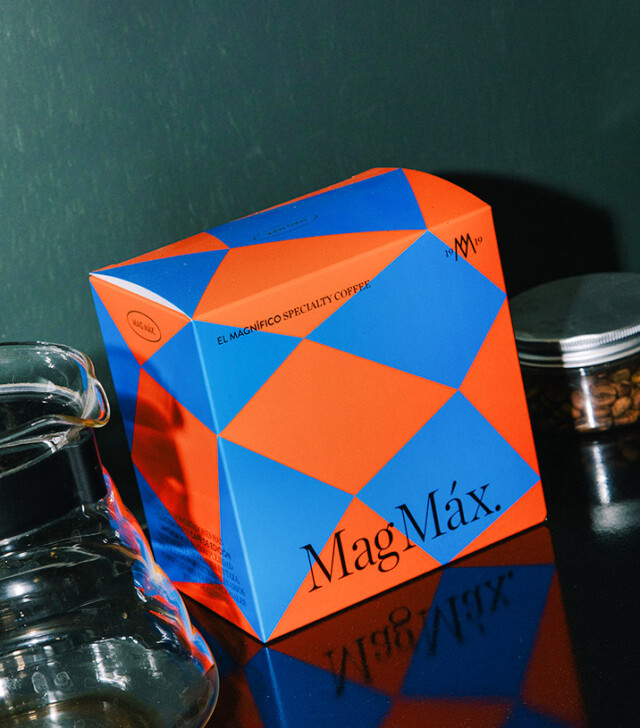México Oralia Castañón Morales
Every year, around this time of year, we select exceptional small batches produced by outstanding coffee growers.
This 2025 selection includes SL28, Pink Bourbon, Geisha, and Bourbon Honey varieties.
Cafeólogo
Cafeólogo es la iniciativa de Jesús Salazar, un proyecto que busca transformar el café en una experiencia completa, donde la calidad sensorial va de la mano con un profundo compromiso ético.
Su enfoque combina ciencia, filosofía, arte y hospitalidad, creando un puente entre productores, consumidores a través de la cultura cafetera. Jesús se formó en medicina y filosofía, lo que le permite abordar el café con rigor técnico y una visión humana y reflexiva.
El propósito de Cafeólogo es ofrecer tazas de café excepcionales, cuidando cada etapa: desde la planta y el proceso agrícola hasta la preparación y el disfrute final, siempre bajo principios de sostenibilidad y respeto a las personas. Trabaja con diferentes fincas para poder dar a conocer sus cafés alrededor del mundo.
Más que un café, es un espacio de diálogo y encuentro alrededor de la pasión compartida por esta bebida.
“Tuve la gran suerte de conocer a Jesús Salazar en un momento clave de mi vida profesional. Él fue mi juez líder en mi primer Cup of Excellence en Costa Rica 2023. Jesús, fue el mejor juez líder que yo pudiera haber imaginado porque su gran conocimiento y capacidad de transmitir me enseñaron mucho. A parte de ser un excelente catador, es un ser humano extraordinario con el que podría estar horas filosofando de café, cultura y de la vida” Nos cuenta Claudia Sans, jefa de control de calidad de Cafés el Magnífico.
The Farm
Oralia Castañón Morales’ farm in Amatenango de la Frontera, Chiapas, is a prime example of careful and resilient work. Oralia, along with her sister Francisca, manages all aspects of the farm: from cultivation to the care of the surrounding ecosystem. Their diverse and sustainable practices reflect knowledge, commitment, and respect for the land.
Beyond coffee production, Oralia plays a strong role in her community: she actively participates in her surroundings not out of obligation, but out of conviction, strengthening the cultural and social bonds that sustain her people. Each bean grown on her farm represents not only the fruit of nature and family labor, but also a connection to the heritage and identity of her community.
Process Method
Once the cherries are harvested at their optimal ripeness, they are transported to a wet processing facility. The cherries are taken to the pulper, where the skin and pulp are removed. They are then transferred to fermentation tanks (in this case, without water) for 24 hours to remove the mucilage.
Afterward, they are taken to the drying yards for 7 days. Once the cherries have reached an 11% moisture content, they are removed from the drying yards to rest before being sent to the thresher.
Origin
As in most of Mesoamerica, coffee was first planted in Mexico during the early colonial period, most likely in the late 18th century. However, due to the greater attention given to the region’s rich mineral deposits and mining opportunities, coffee did not develop as an industry until later, especially in the late 19th and early 20th centuries, with the redistribution of farms, independence, and the emergence of small farmers, particularly those of indigenous origin. In the late 20th century, the Mexican government established a national coffee institution called INMECAFE, which, like the FNC in Colombia and ICAFE in Costa Rica, was designed to offer technical assistance, information, botanical material, and financial credit to producers.
Unfortunately, INMECAFE was something of a short-lived experiment and was dissolved in 1989, leaving producers with a gap in their access to support and resources, especially those in very remote rural areas. This infrastructure disruption and the coffee crisis that followed the end of the International Coffee Agreement plunged Mexican coffee farmers into desperate financial times, which in turn dramatically affected quality. Throughout the 1990s and since the beginning of the 21st century, the increased presence, influence, and focus of Fairtrade and Fairtrade certifications, along with the emphasis on democratically run cooperative farming of small farmers, have worked to transform the image of Mexican coffee into one that reflects sustainability, affordability, and relatively easy logistics, given its proximity to the United States.
In recent years, Mexico has struggled mightily with coffee leaf rust and other pathogens that have reduced both yield and cup quality. This, combined with the high turnover of land ownership and the loss of labor to emigration and relocation, has created a tentative future for the producing country, although we have seen great achievements and great promise from producers and quality associations. The best coffee plants are fantastic, and the long-term work and investment are well worth it to overcome the obstacles faced by the average farmer, who owns between 1 and 5 hectares (although some medium-sized farms run closer to 25 hectares), which helps compensate for the area’s low rainfall. The shade is especially dense to protect the coffee plants from the region’s occasional frosts.
18,50 € – 74 €
This item will be available at a future date. Free shipping from €40 purchase
